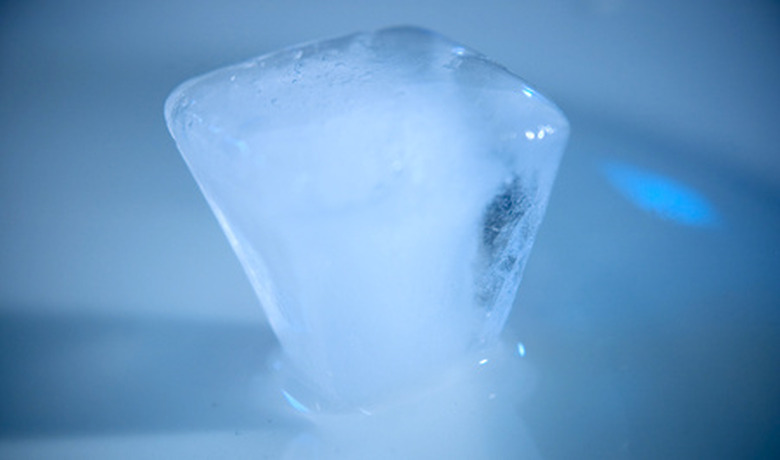What Materials Will Make An Ice Cube Melt Faster?
An ice cube melts in roughly two hours at room temperature. Natural salts can melt ice in less than 15 minutes. Factors impacting how fast an ice cube melts include its size, surrounding temperature and the chosen ice melting agent. The Peters Chemical Company, specialists in road deicing supplies, sells materials that melt ice quickly. Their recommendations rapidly depress the freezing temperature of ice. Use caution when experimenting with toxic deicers, and store them away from children and pets.
Calcium Chloride
Calcium Chloride
Road salt, also known as calcium chloride, is a corrosive material that can melt ice at subzero temperatures. Its ability to impose freezing point depression makes it an ideal material because it can accelerate the ice-melting process. The Peters Chemical Company says calcium chloride is its fastest ice-melting material.
Sodium Chloride
Sodium Chloride
Rock salt, also known as sodium chloride, is an inexpensive and popular deicer. It's not as fast-acting as calcium chloride, but it is effective. It will melt an ice cube in environments warmer than 20 degrees Fahrenheit.
Potassium Chloride
Potassium Chloride
Potassium chloride is an environmentally safe material that will accelerate the melting of an ice cube. This naturally occurring salt can effectively melt ice in settings above 12 degrees Fahrenheit.
Magnesium Chloride
Magnesium Chloride
Magnesium Cchloride is a popular deicer capable of melting an ice cube quickly because it is natural, less toxic, and more environmentally friendly than calcium and sodium chloride. This material can effectively melt ice in environments warmer than 5 degrees Fahrenheit.
Urea
Urea
Urea is another natural salt that will accelerate ice melting. It is less corrosive than potassium chloride and is effective in environments warmer than 15 degrees Fahrenheit.
Sodium Acetate
Sodium Acetate
This runway deicer works like calcium chloride; it's fast, but it does not present chloride-induced corrosion. It can melt an ice cube if its surrounding environmental temperature is above 0 degrees Fahrenheit.
Cite This Article
MLA
Hadley, Christina. "What Materials Will Make An Ice Cube Melt Faster?" sciencing.com, https://www.sciencing.com/materials-ice-cube-melt-faster-6156399/. 24 April 2017.
APA
Hadley, Christina. (2017, April 24). What Materials Will Make An Ice Cube Melt Faster?. sciencing.com. Retrieved from https://www.sciencing.com/materials-ice-cube-melt-faster-6156399/
Chicago
Hadley, Christina. What Materials Will Make An Ice Cube Melt Faster? last modified March 24, 2022. https://www.sciencing.com/materials-ice-cube-melt-faster-6156399/
